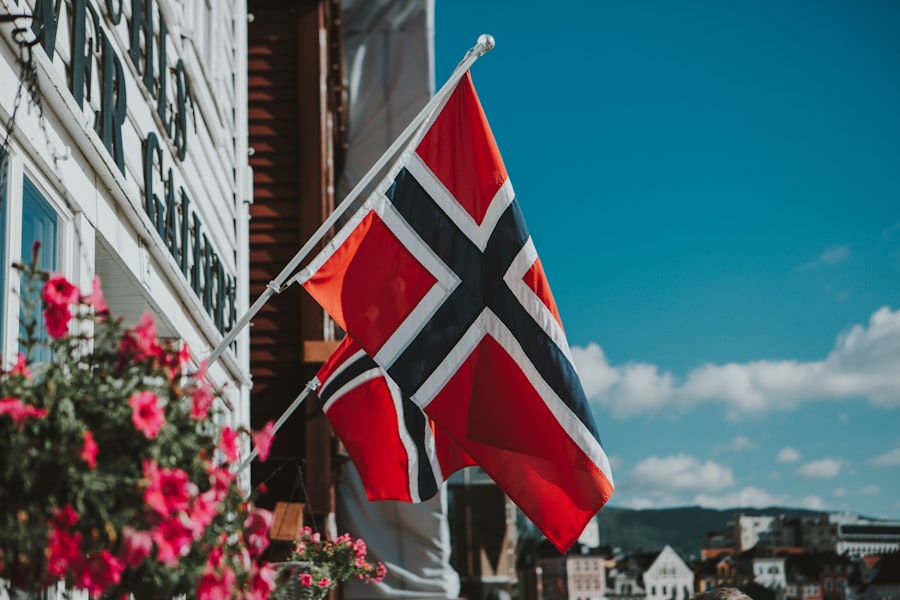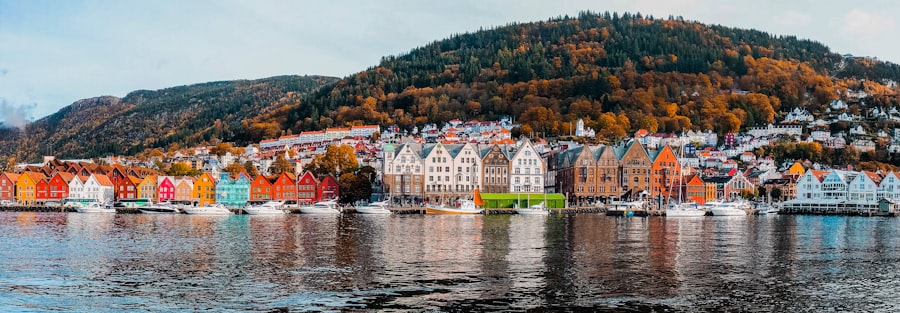In the realm of business, the concept of a “quiet period” is often met with a mix of apprehension and opportunity. In Norway, this phenomenon is particularly pronounced, as various factors contribute to a noticeable slowdown in economic activity during certain times of the year. Understanding the nuances of these quiet periods is essential for businesses aiming to navigate the challenges they present.
The quiet period in Norway is not merely a seasonal occurrence; it is deeply intertwined with cultural practices, holiday schedules, and consumer behaviour. During these times, businesses may experience a dip in sales, reduced foot traffic, and a general sense of lethargy in the marketplace. This slowdown can be attributed to several factors, including the prevalence of holidays, summer vacations, and cultural traditions that dictate when Norwegians choose to spend their time and money.
For entrepreneurs and business owners, recognising these patterns is crucial for effective planning and strategy development. By understanding the quiet periods, businesses can better prepare themselves to weather the storm and emerge stronger on the other side. Your journey to a smooth relocation starts here. Talk one-on-one with a Norway Relocation specialist and turn your plan into a reality. https://norwayrelocation.no/one-hour-strategy-session/
Summary
- The quiet period in Norway refers to a business slowdown, often experienced in July and during holidays.
- Norwegian holidays can significantly impact consumer behaviour and business operations, affecting sales and customer traffic.
- July in Norway sees a slowdown in business activity due to factors such as summer vacations and reduced working hours.
- The summer season in Norway can affect business operations, with many businesses experiencing a decrease in activity.
- Norwegian cultural practices can influence business activity, with traditions and customs impacting consumer behaviour and business operations.
The Impact of Holidays on Business: How Norwegian Holidays Affect Consumer Behaviour and Business Operations
Holidays in Norway are not just days off work; they are significant cultural events that shape consumer behaviour and influence business operations. Major holidays such as Christmas, Easter, and National Day see a marked shift in how Norwegians engage with commerce. During these festive periods, many businesses close their doors or operate on reduced hours, leading to a temporary halt in regular trading activities.
This can create a ripple effect throughout the economy, as suppliers, retailers, and service providers all adjust their operations in response to changing consumer habits. Moreover, holidays often prompt Norwegians to engage in different spending patterns. For instance, during Christmas, there is a surge in gift purchases and festive food shopping, while Easter sees an increase in travel and leisure activities.
Understanding these shifts allows businesses to tailor their offerings and marketing strategies accordingly. By aligning their operations with the holiday calendar, companies can maximise their potential for sales while also ensuring they meet the evolving needs of their customers.
July in Norway: Exploring the Reasons Behind the Slowdown in Business Activity

July is often regarded as one of the quietest months for business in Norway. This slowdown can be attributed to several factors that converge during this time. Firstly, July coincides with the summer holiday season when many Norwegians take extended vacations.
With schools out and families eager to enjoy the warm weather, consumer spending tends to shift away from traditional retail and towards leisure activities such as travel, outdoor adventures, and family outings. As a result, businesses that rely heavily on foot traffic may find themselves facing a significant decline in customer numbers. Additionally, July is a time when many businesses themselves close for holidays or operate with reduced staff.
This can lead to longer wait times for services and diminished product availability, further discouraging consumer engagement. For businesses that remain open during this period, it becomes essential to adapt their strategies to cater to a more relaxed clientele. Offering promotions or unique experiences can help attract customers who are still looking to enjoy their summer while also navigating the challenges posed by the quiet period.
The Influence of Summer Holidays: How the Summer Season Affects Business in Norway
The summer season in Norway brings with it a unique set of challenges and opportunities for businesses. As temperatures rise and daylight stretches into the late hours, Norwegians embrace outdoor activities and travel plans. This shift in lifestyle often leads to a decline in traditional shopping habits as consumers prioritise leisure over retail.
Businesses that thrive during other seasons may find themselves grappling with reduced sales figures as customers divert their attention towards summer pursuits. However, this seasonal shift also presents opportunities for businesses willing to adapt. Companies can capitalise on the summer spirit by offering seasonal products or services that align with outdoor activities.
For instance, retailers might focus on selling summer apparel or outdoor equipment, while restaurants could create special menus featuring fresh local produce. By embracing the essence of summer and tailoring their offerings accordingly, businesses can maintain engagement with customers even during quieter months.
The Role of Cultural Traditions: Understanding the Impact of Norwegian Cultural Practices on Business Activity
Norwegian culture is rich with traditions that significantly influence business activity throughout the year. From Midsummer celebrations to traditional Christmas markets, these cultural practices shape consumer behaviour and dictate when people are most likely to spend money. For instance, during Midsummer, many Norwegians partake in outdoor festivities that often involve barbecues and gatherings with friends and family.
This cultural emphasis on socialising can lead to increased spending on food and beverages but may also divert attention away from retail shopping. Understanding these cultural nuances is vital for businesses seeking to thrive in Norway’s unique market landscape. By aligning marketing efforts with cultural events and traditions, companies can create targeted campaigns that resonate with consumers on a deeper level.
This approach not only fosters brand loyalty but also enhances customer engagement during periods that might otherwise be considered slow.
Strategies for Managing the Quiet Period: Tips for Businesses to Navigate Slowdowns in July and During Holidays

Navigating the quiet periods in Norway requires strategic planning and adaptability from businesses. One effective approach is to diversify offerings during these times. By introducing seasonal products or services that cater specifically to summer activities or holiday celebrations, businesses can attract customers who may otherwise be disengaged from traditional shopping experiences.
For example, a clothing retailer could launch a summer collection featuring lightweight fabrics and vibrant colours that appeal to holiday-goers. Another strategy involves leveraging digital marketing channels to maintain visibility during slow periods. Social media platforms provide an excellent opportunity for businesses to engage with customers through creative content that highlights seasonal promotions or unique experiences.
By maintaining an active online presence, companies can keep their brand top-of-mind for consumers even when foot traffic is low.
The Importance of Planning Ahead: How Businesses in Norway Can Prepare for the Quiet Period
Preparation is key when it comes to managing quiet periods effectively. Businesses should take proactive steps to anticipate slowdowns by analysing historical sales data and identifying trends related to holidays and seasonal changes. By understanding when these quiet periods typically occur, companies can develop targeted marketing strategies well in advance.
Additionally, businesses should consider adjusting staffing levels during slow months to optimise operational efficiency without compromising customer service quality. This might involve cross-training employees or implementing flexible scheduling practices that allow for adequate coverage while minimising labour costs during quieter times.
Leveraging Digital Marketing: Using Online Platforms to Maintain Business Activity During Slow Periods
In today’s digital age, leveraging online platforms has become essential for maintaining business activity during slow periods. Social media marketing offers an effective way for businesses to engage with customers directly and promote special offers or events tailored to specific seasons or holidays. By creating compelling content that resonates with their target audience, companies can drive traffic to their websites or physical locations even when foot traffic is low.
Moreover, email marketing campaigns can serve as a powerful tool for keeping customers informed about upcoming promotions or new product launches. By segmenting their email lists based on customer preferences or past purchasing behaviour, businesses can deliver personalised messages that encourage engagement and drive sales during quieter months.
The Role of Tourism: Understanding the Influence of Tourism on Business Activity During Holidays
Tourism plays a significant role in shaping business activity during holidays in Norway. As international visitors flock to popular destinations during peak seasons, local businesses often experience an influx of customers seeking unique experiences and authentic products. This surge in tourism can provide a much-needed boost for retailers, restaurants, and service providers who may otherwise struggle during quieter months.
To capitalise on this influx of tourists, businesses should consider tailoring their offerings to cater specifically to visitors’ needs. This might involve creating special packages or promotions that highlight local attractions or experiences unique to the region. By embracing tourism as an opportunity rather than viewing it solely as competition for local customers, businesses can thrive even during traditionally slow periods.
The Impact on Small Businesses: Exploring the Challenges Faced by Small Enterprises During the Quiet Period
Small businesses often face unique challenges during quiet periods compared to larger enterprises with more resources at their disposal. Limited budgets may restrict their ability to invest in marketing campaigns or seasonal promotions that could help drive sales during slower months. Additionally, small businesses may lack the flexibility needed to adjust staffing levels quickly in response to changing demand.
However, small enterprises also possess inherent advantages that can be leveraged during quiet periods. Their ability to foster personal relationships with customers allows them to create loyal followings that can sustain them through challenging times. By focusing on building community connections and offering exceptional customer service, small businesses can navigate quiet periods more effectively than larger competitors who may struggle with bureaucracy.
Looking Ahead: Strategies for Recovery and Growth After the Quiet Period in Norway
As quiet periods come to an end, businesses must shift their focus towards recovery and growth strategies that will set them up for success moving forward. One effective approach involves analysing performance metrics from previous quiet periods to identify areas for improvement and growth opportunities. By understanding what worked well—and what didn’t—businesses can refine their strategies for future success.
Additionally, investing in employee training and development during quieter months can pay dividends once business picks up again. Equipping staff with new skills or knowledge not only enhances customer service but also fosters a culture of continuous improvement within the organisation. In conclusion, while quiet periods present challenges for businesses operating in Norway, they also offer opportunities for growth and innovation when approached strategically.
By understanding consumer behaviour patterns influenced by holidays and cultural traditions—and leveraging digital marketing tools—companies can navigate these slowdowns effectively while positioning themselves for success in the future. For those considering relocation or expansion into Norway’s vibrant market landscape, partnering with organisations like the Norway Relocation Group can provide invaluable support throughout this process. Their expertise ensures a smooth transition into Norwegian business culture while helping newcomers understand local market dynamics.
Furthermore, as language proficiency plays a crucial role in successful integration into Norwegian society and business environments, enrolling in Norwegian courses at the NLS Norwegian Language School in Oslo can significantly enhance communication skills and cultural understanding—key components for thriving amidst Norway’s unique business landscape.
Register for a Norwegian class at the NLS Norwegian Language School now!

